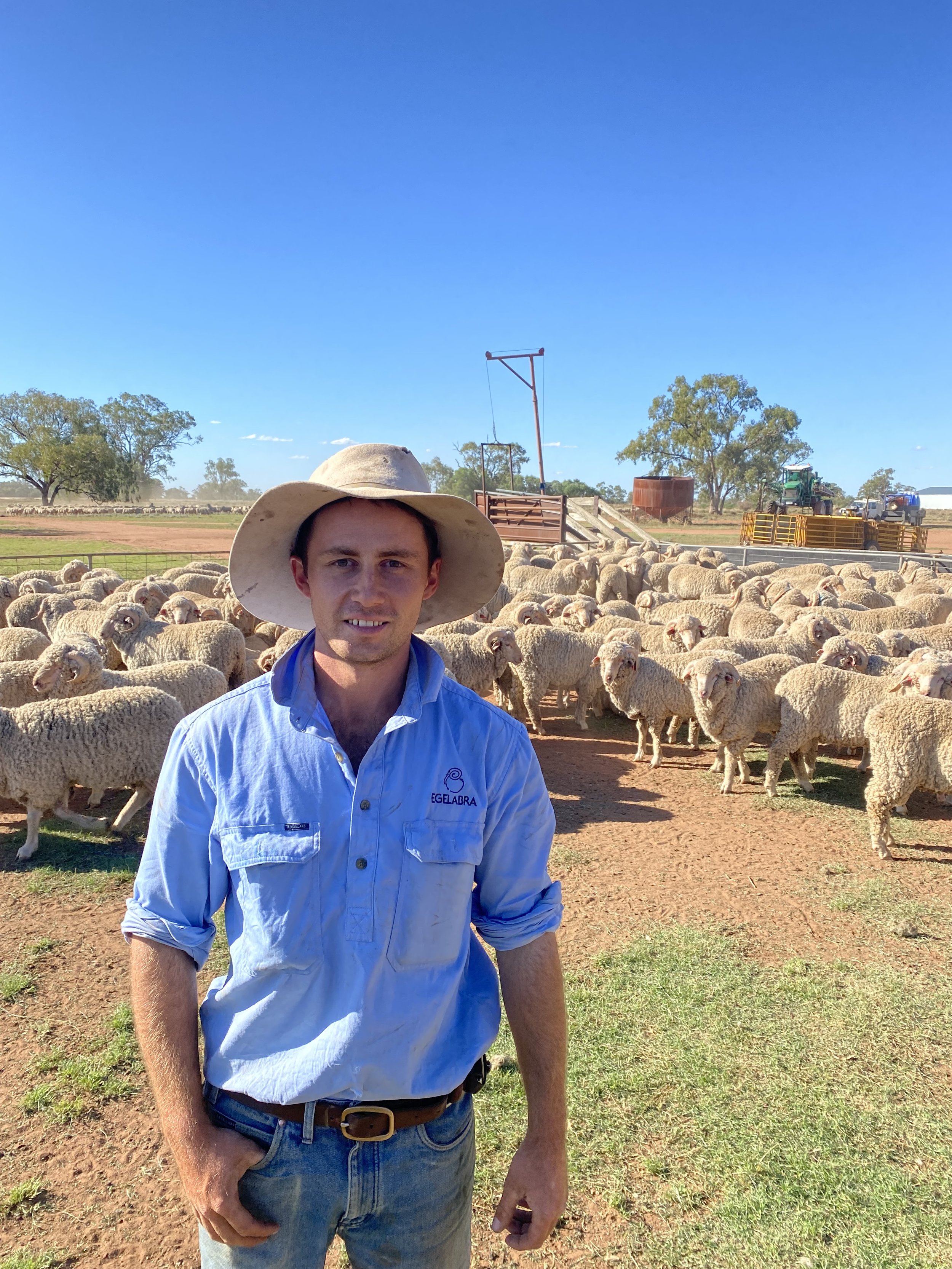“My generation is starting to see the impacts of unsustainable practices across agriculture. It is also up to my generation to improve on this to ensure a sustainable future.
“While managing land correctly and being involved in the production of wool may seem like small steps in creating a sustainable future, it is a multitude of small steps that can lead to big changes.”
Austin Grace
2023
Agriculture
In honour of Frank Mansell
Austin Grace describes his scholarship experience as eye-opening, saying, “Seeing New Zealand’s innovative sheep breeding opened my eyes to the future of sustainable farming.”
As a 2024 Global Footprints Agriculture Scholar, Austin travelled across New Zealand’s South Island to gain hands-on experience on a variety of sheep farms. His journey took him to farms with diverse climates and challenges, where he learned advanced sheep breeding, animal management, and innovative farming practices.
His first placement was at Stonyhurst, a family-owned farm near the Wairau Valley. The farm operates stud and commercial sheep, cattle, deer, and cropping enterprises. Known for its long history and leadership innovation, Stonyhurst faces challenges such as heavy rainfall, foot rot, and worms. To address these, the farm breeds sheep selected for resistance, allowing them to reduce chemical treatments for older sheep.
Austin assisted with the weaning program and learned about experimental breeding lines designed to reduce the need for tail docking and crutching, while maintaining valuable wool production. He was deeply impressed by this forward-thinking approach.
He then worked with the Foley family at Marua on the Banks Peninsula, helping with weaning and crutching. Afterward, he moved to Amarama Station, a sheep, cattle, and fodder cropping property that uses pivot irrigation to manage dry periods. This gave him insight into how rainfall patterns affect farming practices across the island.
One of Austin’s favourite placements was Muller Station in the Awatere Valley, where he experienced true stockmanship on a large-scale sheep and cattle farm covering a wide range of altitudes. In winter, parts of the farm are covered in snow. Mustering was mostly done on foot or horseback with working dogs, and Austin was amazed by the close bond between shepherds and their dogs. He assisted with mustering, weaning, and the classing of the next generation of rams. This time also inspired him to improve his own dog training skills.
Austin also visited Blair Tomorrow Stud in the Awatere Valley, meeting Australian sheep classer Chris Bowman and touring young stock facilities. Observing Australian genetics thriving in New Zealand was eye-opening. He was fortunate to tour the property by helicopter, gaining an unforgettable view of the landscape.
To further his understanding of New Zealand’s sheep industry, Austin attended multiple ram sales across the island. He visited Glen Allen and Marinos, which source genetics from Australia, and learned about Romney breed crossbreeding to improve foot rot and worm resistance while maintaining wool quality. He also attended sales at Middlehurst Station, Armadale Marino Stud, and Ernes Clue Station. At the latter, breeder Alistair’s passion was evident in their multiple stud lines, including ultra-fine wool and a fertility-focused line using the GDF9 gene, which significantly increases reproduction rates. Some wool sold there was exceptionally fine and commanded record prices, highlighting the high standards in this industry.
Since completing his scholarship, Austin has taken a full-time role as stud manager at Bogo Marinos, a stud sheep and cropping farm. He also runs his own business, IG Livestock, classing sheep and wool in New South Wales.
Austin describes this scholarship as a life-changing experience that expanded his skills and knowledge of sheep management and breeding, gave him a broader perspective on the challenges facing the industry, and connected him with a valuable professional network. He is grateful to BBM, especially Suellen McCaffrey and Carmen Wells, for their support in making this opportunity possible. Austin looks forward to applying what he has learned to help build a sustainable future for agriculture.


